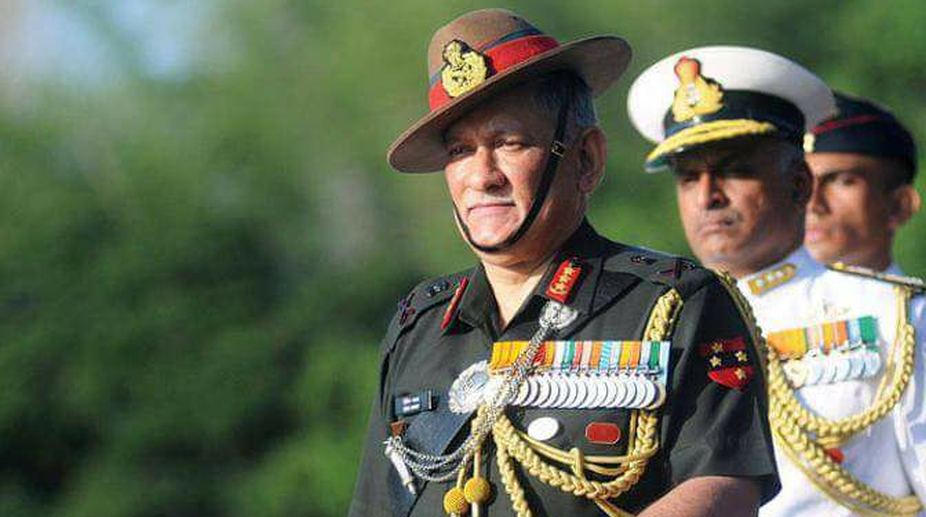Manipur looted weapons issue: Army, security forces recover INSAS rifles, guns, pistols, mortars, IEDs
Defence spokesman Lt. Col Amit Shukla said security forces also destroyed several illegal bunkers in the Kangpokpi district.

Army Chief General Bipin Rawat (Photo: Twitter)
A major part of the Army’s budget was being utilised in developing infrastructure, schools and hospitals in remote areas of the country, Army chief General Bipin Rawat said, adding that the impression that Indian armed forces were capable of securing the borders gave confidence to foreign investors.
General Rawat, who delivered a lecture on Indian Army in Nation Building’ at the Jindal Global University (JGU), said the Indian Army was a “humane Army” and had been effectively handling terrorist challenges in a professional manner.
Advertisement
He also said the armed forces personnel needed to keep abreast of latest technological developments in order to take on futuristic challenges with the emergence of artificial intelligence.
Advertisement
He said the armed forces in India had not only been addressing conflicts but also contributing to the nation’s growth.
The Indian armed forces not only secure the borders but also provides a cushioning internationally for investors and creating a favourable ambience for investments like FDI.
With this impression that the Indian armed forces are capable of securing the borders, gives confidence to international investors. I can assure you that whatever budget is provided to armed forces, a good part of it is also utilised in developing infrastructure, roads, schools and hospitals in remotest areas of the country, General Rawat said.
C Raj Kumar, the founding vice-chancellor of the JGU, announced special concessions for children of war widows and serving army personnel on the occasion.
The Army chief said that there was a proposal to send some of the officers to universities to exchange ideas and get opportunities for the retired army personnel.
“We have over 1,000 officers aged between 45-55 years who retire every year as they do not get empanelled for promotion. They are experienced, talented and have the practical knowledge. But they do not have the stamp of a degree.
“50,000 of our soldiers also face similar situation and face difficulties in their second career after leaving the armed forces. That is what we are looking at,” the general said.
Advertisement
Defence spokesman Lt. Col Amit Shukla said security forces also destroyed several illegal bunkers in the Kangpokpi district.
In Hengjang, Manipur, the Army organized a lecture on Women Empowerment followed by a spirited volleyball match, which witnessed enthusiastic participation from the local community.
In a series of operations, the Indian Army and Assam Rifles formation under Spear Corps launched intelligence-based operations in the hill and valley districts of Manipur and recovered 114 weapons, Improvised Devices (IEDs), grenades, ammunition and war-like stores.
Advertisement
